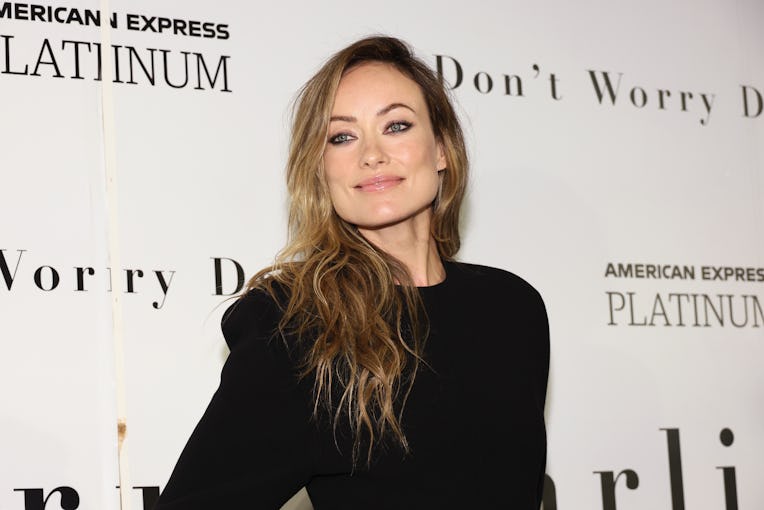In Olivia Wilde's Hands, ‘Don't Worry Darling’ Was Doomed to Fail
The film's troubles go back way further than the turmoil on set

First, the good news: Don’t Worry Darling did not flop. Olivia Wilde’s critically maligned, drama-laden sophomore feature made $19.2 million at the box office this past weekend, recouping about two-thirds of its budget. It’s on track to more or less break even, so everyone at Warner Bros can finally sleep at night, knowing their future is safe with Black Adam.
The relative success of the film’s box office came after a few 11th hour — or 13th, if we’re being honest — twists and turns. The first of which was a story at Vulture detailing a supposed screaming argument between Wilde and the film’s lead, Florence Pugh, and the latter’s subsequent decision to “take things all the way to the top” in order to be released from her promotional obligations to the film. Then, 40 of the film’s crew members signed a letter saying no such incident happened, and that Wilde created a “collaborative and safe space” on set. Yesterday, however, Lainey Gossip confirmed that the argument did happen, and perhaps there is more yet to be uncovered.
“But as annoyed as people got with Wilde — and they got VERY annoyed — there is still a circle of protection in effect. All three of my sources hinted at worse happenings still, but were unwilling to go on the record, even as unnamed sources, about what went on, because no one actually wants to torpedo Wilde’s career,” Lainey explained.
Amid speculation into whether the disastrous press tour will negatively affect Wilde’s ability to make movies, misogyny has been both a weapon and a shield for her. No doubt she is the victim of tedious and hateful campaigns from the most fervent members of the Styles standom, but her own harping on the film’s feminist values (of which there appear to be very few) has done little to help her case.
Though questions of “director jail” often focus on how much money a movie brings in, perhaps they should (more charitably) be narrowed to a particular question: Is a director actually good at directing movies, from the time of artistic conception to premiere? By all accounts, Don’t Worry Darling is stylish and competently made. It looks good; it feels, as Harry Styles once said, “like a movie.” And indeed, reviews near and far have praised Pugh’s star turn in it.
But like Booksmart before it, Wilde’s directorial style is hampered by a screenplay that just doesn’t work. Part of a director’s job is choosing a script that will highlight their own strengths and challenge the standard they’ve set for themselves. Despite Booksmart’s success with adults who wish they could go to high school and really figure it out the second time around, the script, which was stuck in purgatory for a decade before it got a refresh, suffered from unfunny referential humor and phony appeals to pathos. Don’t Worry Darling, on the other hand, is some kind of social thriller that refuses to play its hand until far too late in the film, and was also mired in artistic limbo for quite some time. The film’s initial script, randomly written by the grandchildren of Dick Van Dyke, revealed its game a third of the way into the movie, making for a much more streamlined and propellant structure. It seems feasible that Wilde is capable of directing a competent movie, but perhaps she needs to distance herself from screenwriting partner Katie Silberman, who overhauled both the Booksmart and DWD scripts, in order to do so (that way Silberman can maybe, like, make a sequel to 2018’s amazing Set It Up).
But the product on screen is not the be-all, end-all of directing, and this is why what happened on either side of the Don’t Worry Darling production does kind of matter. Wilde chose a bad script, did a bad rewrite, and then created a bad working environment for her lead actors. The whole thing was doomed from the onset, and rather than face criticism dead-on, Wilde opted to suffer through a lesson in the history of the Hollywood sign at the behest of Stephen Colbert and blame misogyny. If Wilde is committed to her narrative, that’s her right, but maybe she needs to find a studio less concerned with workplace ethics and good scripts. Might I suggest Marvel?